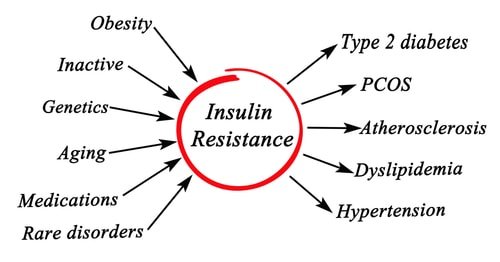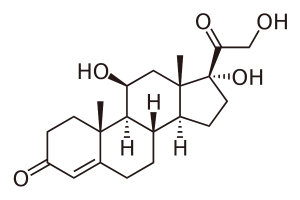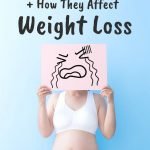How Hormones Affect Weight Loss + How to Reset
Learn how hormones affect weight loss and if they are the reason that you have hit a plateau and the scale won’t budge no matter what you do.
You’re working on shedding another ten pounds or so, but your body seems to have hit a major plateau. No amount of exercise, dieting, or healthy meals appears to be working.
A sudden decrease in weight loss may not have anything to do with your effort. In reality, it may have everything to do with your body’s hormones.
Wait a minute. What do hormones have to do with weight loss?
Hormones control a lot of functions in our bodies, from immunity to behaviors. How we think, act, stay motivated, and even how our internal processes work all boil down to good old hormones.
And, yes, they have control over our weight loss.
If you’re having problems losing weight, you may want to check with your doctor to rule out a possible hormone issue. Don’t worry, though – it is possible to reset your body and get those stubborn hormones back on track.
This post may contain affiliate links, which helps keep this content free. Please read our disclosure for more info.
What Do Hormones Do to Our Bodies?
Hormones are small control units of our bodies. Think of them like little delivery people that send important communications to every area of our bodies.
They control our emotions, tell us when to grow, ramp up the immune system when necessary, and help develop our body systems. They even coordinate information between systems to make sure everything functions properly.
But, not all cells get affected by every hormone. According to PBS, hormones only interact with the cells that have receptors for them.
It’s kind of like a magnet. If you put them together the right way, they attract each other; if you try to change the position of one, they push each other apart.
What Causes Hormone Imbalances?
Endocrine disruptors are chemicals that can affect the natural cycle of hormones. These sneaky guys can pretend to be a receptor for a hormone or block the hormone’s pathway altogether.
The results are out-of-whack body systems and hormone imbalances.
A hormone imbalance can also occur from an unhealthy lifestyle, like a poor diet or lack of activity. Of course, natural body changes that occur with aging, like menopause, can also be culprits.
How Hormones Affect Weight Loss
Hormones obviously have a lot of control over our bodies. Unfortunately, they also have the power to inhibit our weight loss once they get thrown off course.
Hormones control everything that leads to weight loss: the amount of muscle you gain, how energetic you feel, and your metabolism, for example.
If you’re not losing weight, you could have a hormonal imbalance that’s affecting one or more of these body processes.
Take, for example, insulin. Tis hormone is one of the most important for keeping your metabolism on track.
If your body has an insulin imbalance, which happens to those with diabetes, your body can lose energy, gain weight, have trouble breaking down food, and raise blood sugar.

You may notice that when you become stressed, you have a more difficult time losing weight. Why?
Stress can inhibit effective weight loss hormones and signal not-so-healthy hormones to start working.
Your hormones could even trigger unhealthy snacking habits and a lack of energy that keeps you from working out.
Other hormonal balances, which several factors can cause, may also to blame. A Rutgers study showed that when certain hormones were depressed in lab mice, they ate foods high in fat and bigger portions than usual (1).
Weight Gain Hormones to Watch
Some hormones are nicknamed “weight gain hormones” because of their ability to contribute to weight gain when they’re overactive. Here are a few important weight gain hormones to know about:
1. Reverse T3
Mark Hyman explains that Reverse T3 is often the hormone that keeps the thyroid hormone from working properly, leading to hypothyroidism. Hypothyroidism is one of the leading causes of weight gain, especially in women.
Reverse T3 can become active when the “normal” hormone, T4, gets affected by chronic stress, unhealthy dieting, chronic alcohol or drug abuse, or other significant changes in your body.
2. Cortisol

This is another hormone that becomes overly-active from high levels of stress or mental health challenges.
Cortisol is responsible for increased appetite, little energy, and even a loss of muscle mass. Your weight loss can suffer dramatically from increased cortisol levels.
3. Estrogen
Yes, ladies. We have plenty of the naturally-occurring estrogen that makes us female.
Unfortunately, estrogen is also one of the leading causes of weight gain.
Estrogen then causes more fat to sit around your abs, making it harder to lose weight. You may also lose muscle mass and gain weight around the hip area.
How to Balance Your Hormones to Promote Weight Loss
So, what can you do to combat wacky hormones and get your weight loss back on track?
You can reset your body to regain healthy hormone levels, and it doesn’t always require a visit to the doctor.
Resetting your body is all about reaching healthy levels of weight gain hormones by counteracting them with weight loss hormones. Here’s how to do it:
1. De-Stress.

First things first, you need to find ways to relax. Stress is the number one cause of hormonal imbalances, and you may not realize the impact it has on your weight loss until you find yourself 20 pounds heavier.
Make time for yourself throughout the day, whether it’s a quick 10-minute walk on your lunch break or a long bath after work. You are an important factor in your weight loss success.
2. Sleep well.
One study published in the Journal of Applied Physiology showed that chronic sleep loss leads to increased insulin production and other factors that disturb metabolism (2).
Watch your caffeine intake throughout the day and especially near bedtime. At least two or three hours before shut-eye time, cut out coffee, soda, tea, and chocolate, all of which have caffeine.
3. Detox from carbohydrates, temporarily.

Your diet can be a major culprit in your ability to lose weight, even if you’re eating healthy foods.
Fruit, for example, increases leptin production.
Leptin is supposed to signal to your brain when you’re full, but increased amounts of the hormone decrease its effectiveness, which can cause you to overeat.
Too many carbohydrates, especially refined and processed (think packaged foods, bread, sugar, etc.), on the system over an extended period of time can cause you to become insulin resistant.
To make a long story short, when you are insulin resistant rather than insulin sensitive, your body can no longer process nutrients effectively. Good food and bad food… your body can’t really tell the difference anymore.
In order to fix this, you must do a complete detox from carbohydrates for a period of time until your hormones get a chance to reset, you become insulin sensitive again, and you can properly process foods and lose weight again.
This is THE biggest concept behind our popular fast weight loss program, the 21-Day Fat Loss Challenge. It starts out with a complete carbohydrate detox that causes our clients to lose 7-10 pounds in their first WEEK of the diet!
Most of our clients are over 200 lbs and struggling to find a weight loss program that they can actually stick with to get long-term results. Beyond the weight loss, the program teaches you how to build healthy habits that help you not only lose the weight, but also keep it off!
The 21-Day Fat Loss Challenge can be repeated in multiple ’rounds’ if you have more weight to lose, and most of our clients have turned it into their lifestyle and claim that “It’s just how they eat now.”
If you are ready to make a positive change in your diet and dive into YOUR Challenge today, click here to get started!
If you enjoyed this article on how hormones affect weight loss, please feel free to leave us a comment below or ask us any questions that you may have!




awesome information. I love your insights on this topic. More power to you
Thanks for sharing such useful information! Hormonal imbalance is a very common problem for millions of people. Those who have a hormonal imbalance may find that they gain weight despite their efforts to remain healthy. Those suffering from unbalanced hormones can easily become fatigued. Feeling sluggish and foggy is not a normal daily occurrence, so this can be indicative of a problem. Starting a healthy diet and exercising regularly can help reduce the increased exhaustion.